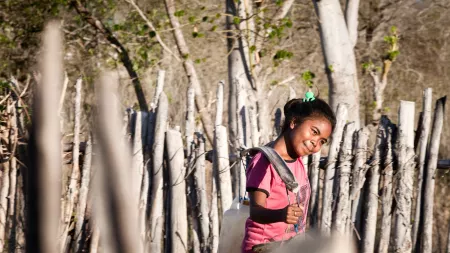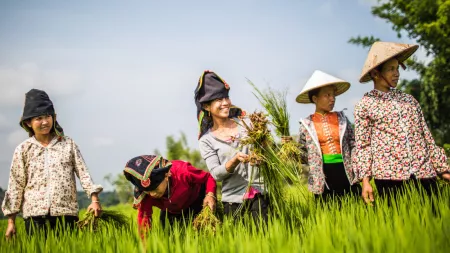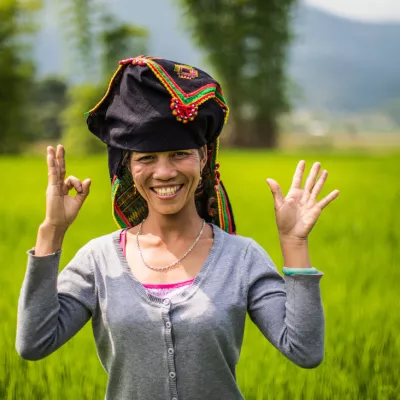The importance of disaster risk reduction
The climate emergency can have far-reaching effects, often devastating people’s ability to access to food, clean water, shelter, and more.
Disaster risk reduction entails strengthening the ability of a community to anticipate and deal with shocks and stresses caused by the climate emergency.
This practice requires systematic efforts to analyze and manage the causal factors of disasters, including through reducing a community’s exposure to hazards and the vulnerability of its people and property, diversifying how land, water, and ecosystems are managed, and improving community preparedness for adverse events.
As the climate emergency and ecosystem degradation worsens, approaches to disaster risk reduction must evolve. Over the years, CARE International has developed new approaches, such as Integrated Risk Management, which is an enhanced, holistic approach to increase community resilience by integrating disaster risk reduction, climate change adaptation, and ecosystem management and restoration.
What CARE International is doing to help improve disaster risk reduction
CARE International works with communities to help them prepare and plan for climactic emergencies around the world. For example, in Vanuatu, CARE works with communities to develop evacuation plans in case a tsunami or cyclone strikes. We teach adaptive farming methods, including through the use of drought-resistant crops. We help build homes in safer places, with access to sustainable livelihoods, health, and social services. This ensures communities are equipped to both respond to, and survive, emergencies.
In Vietnam, Cambodia, and Laos, where over 70 percent of the population live in rural areas, harsh climatic conditions are further aggravated by climate change. CARE International’s Agro-Climate Information Service Program enables women farmers, ethnic minority farmers, and agricultural planners to better anticipate and respond to changes in the weather through participatory and equitable agro-climate information services.
Kien Quang Thi, a Vietnamese farmer who participates in the program, helps forecast the weather and provides advice for farmers on what, when, and how to plant. Having herself experienced a total crop failure, today she works in cooperation with meteorologists, local authorities, and farmers to support her community in avoiding future crop failures.
“Our village leader acknowledges the importance of our forecasting and the information exchange amongst people. The government also needs to listen to those who are most affected by climate change and take advantage of our knowledge.”
Kien Quang Thi
So far in Vietnam, the Agro-Climate Information Service Program has helped more than 5,000 people build resilience to climate change.



